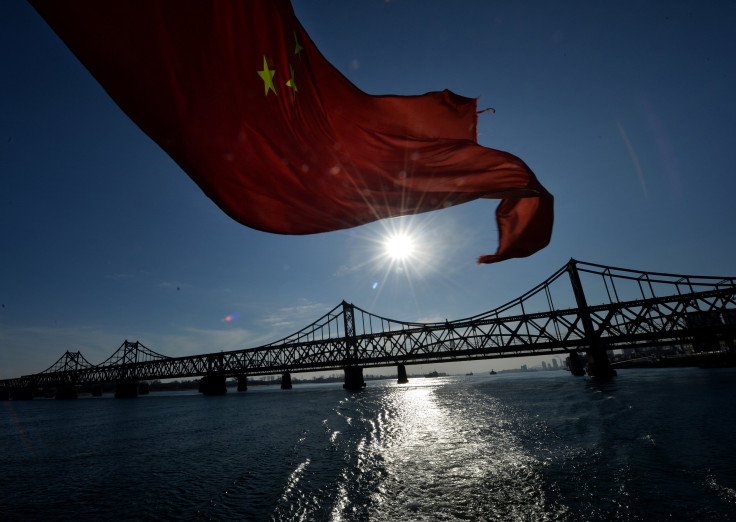China Deploys Troops To North Korea Border Fearing Fifth Nuclear Test, Report Says

China deployed troops to its border with North Korea Wednesday as reports said that the reclusive country may be preparing to conduct a fifth nuclear test. Tensions have been rising on the Korean peninsula since Pyongyang conducted a nuclear test, a rocket launch and test-fired several missiles over the past few months, leading the United Nations to slap harsh sanctions.
The Information Center for Human Rights and Democracy, a Hong Kong based non-profit, said Wednesday that Beijing deployed 2,000 troops along the border it shares with North Korea, according to Sputnik News. The statement from the organization added that several Chinese troops were given the work of measuring radioactive emissions if North Korea conducts the fifth nuclear test.
A report by Washington-based news agency United Press International also said that the Chinese troops will be stationed at two major observation posts and added that the guards will act as lookouts throughout the day.
Beijing’s latest deployment of troops follows one in January after Pyongyang conducted its fourth nuclear test. China sent 3,000 troops then while the country also deployed troops in late 2013, after Kim Jong Un’s uncle Jang Sung Taek was executed. It was not clear what China’s motives were to deploy the troops on Wednesday.
Another report Wednesday warned that North Korea could face new sanctions, including an effort to cut hard currency earned by North Koreans working abroad if it conducts its fifth nuclear test. Assistant Secretary of State for East Asian and Pacific Affairs Danny Russel had said, according to Reuters, that the U.S. and its allies could take unspecified “defense-related measures,” in such a scenario.
So far, Pyongyang has said that its nuclear advancements are to defend itself from South Korea and the U.S., who have been conducting their joint annual military drills. While North Korea has claimed that the drills are a preparation for an invasion, Washington and Seoul have reiterated that they are just for defense.
China has been the closest trading partner for North Korea, but earlier in April Beijing announced that it would restrict imports from the country. The move came after several U.S. analysts and officials said that the U.N. sanctions would work against North Korea only if China fully implemented them. Russel also said that Beijing had “exhausted traditional options of encouraging and cajoling and persuading the North Koreans and they have clearly shifted to the application of pressure.”
He said, according to Reuters: “There is an argument to be made that serious and sustained pressure on North Korea has never before been undertaken,” adding: “The degree to which the North Korean economy depends on China and access to China is such that this stated resolve on the part of China, I think, constitutes something of a new ball game.”
© Copyright IBTimes 2025. All rights reserved.






















